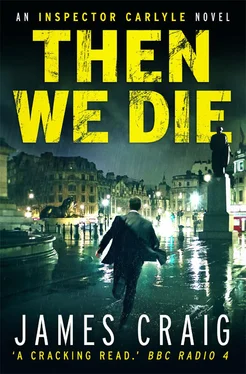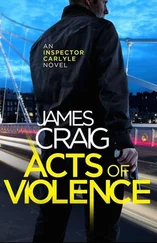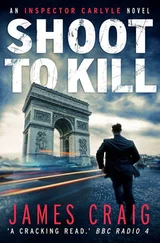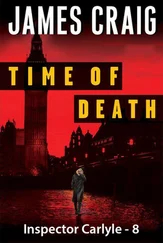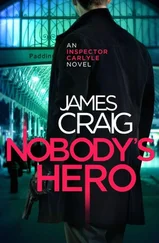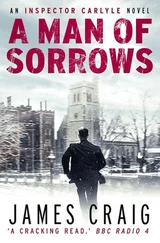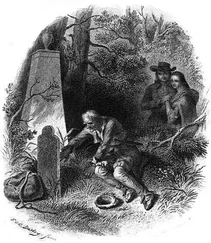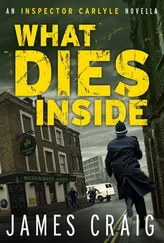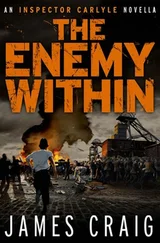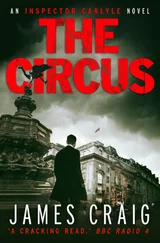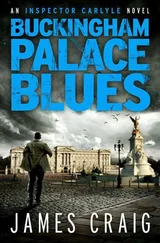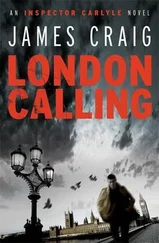James Craig - Then We Die
Здесь есть возможность читать онлайн «James Craig - Then We Die» весь текст электронной книги совершенно бесплатно (целиком полную версию без сокращений). В некоторых случаях можно слушать аудио, скачать через торрент в формате fb2 и присутствует краткое содержание. Год выпуска: 2013, ISBN: 2013, Издательство: C & R Crime, Жанр: Полицейский детектив, на английском языке. Описание произведения, (предисловие) а так же отзывы посетителей доступны на портале библиотеки ЛибКат.
- Название:Then We Die
- Автор:
- Издательство:C & R Crime
- Жанр:
- Год:2013
- ISBN:1472100395
- Рейтинг книги:5 / 5. Голосов: 1
-
Избранное:Добавить в избранное
- Отзывы:
-
Ваша оценка:
- 100
- 1
- 2
- 3
- 4
- 5
Then We Die: краткое содержание, описание и аннотация
Предлагаем к чтению аннотацию, описание, краткое содержание или предисловие (зависит от того, что написал сам автор книги «Then We Die»). Если вы не нашли необходимую информацию о книге — напишите в комментариях, мы постараемся отыскать её.
Then We Die — читать онлайн бесплатно полную книгу (весь текст) целиком
Ниже представлен текст книги, разбитый по страницам. Система сохранения места последней прочитанной страницы, позволяет с удобством читать онлайн бесплатно книгу «Then We Die», без необходимости каждый раз заново искать на чём Вы остановились. Поставьте закладку, и сможете в любой момент перейти на страницу, на которой закончили чтение.
Интервал:
Закладка:
London’s largest public square, Lincoln’s Inn Fields, wasn’t much of a park but it was the only green space near where he lived, and so Carlyle liked it well enough. Allegedly the inspiration for New York’s Central Park, it consisted merely of a couple of scruffy patches of grass, a decaying bandstand and some tennis courts. In the 1990s, a group of homeless people set up home there, leading the council to close it for the best part of a year. These days, the vagrants only appeared in ones and twos to sit on the park benches, congregating en masse only at dusk, when a mobile soup kitchen made its nightly appearance.
Tossing his breakfast rubbish in a bin, Carlyle entered by the north-west corner of the park just after eight-thirty. A couple of joggers were moving slowly around the path that followed the perimeter fence while a handful of workers went scurrying, heads down, to their nearby offices. A few familiar faces from the halfway house on Parker Street already occupied various benches. Otherwise, the space was almost deserted.
The small white tent set up by a tree at the far end, next to a small digger, showed him where he was going. A group of technicians were working behind a blue tape, while a uniform chatted to a gaunt-looking woman out walking her dog. Another day at the office beckoned. Carlyle’s bones ached with fatigue, and he felt a sudden keen desire for a second cup of coffee. Ignoring the craving, he thrust his hands into his pockets and marched on.
Approaching the blue and white police tape, he was stopped by a woman in her thirties. She was almost as tall as him, a tired-looking redhead enveloped in an outsize puffa jacket.
She gave him the once-over with her dull green eyes. ‘Inspector Carlyle?’
‘Yes,’ he admitted, without any enthusiasm.
She held out a hand. He shook it limply.
‘Alison Roche. They’ve sent me over from the Leyton station to stand in for Joseph Siz. .’
‘Joe — Joe Szyszkowski.’
‘Yes.’ Roche blushed, gazing down at the grey mud under her feet. ‘How’s he doing?’
Carlyle looked at his own shoes sinking into the mush. ‘Didn’t make it. Heart attack.’
‘Oh — I’m sorry.’
Carlyle nodded towards the tent. ‘What have we got here?’
‘Man shot in the head.’
Carlyle let out a deep breath. ‘Have you spoken to the other people in the park yet?’
‘No.’
‘Why not?’ Carlyle snapped, getting ready to take an instant dislike to Ms Roche.
‘Because all we’ve got back there is a skeleton. The man — or woman — has been dead for maybe fifty years.’
Fifty years? How could you leave a body in a park in the middle of London for fifty bloody years? Only if no one cared about the poor bugger who had died, for a start. Even then, wouldn’t some sodding dog have started digging up the bones?
This wasn’t a case; this was just paperwork. Carlyle’s interest level went straight down to zero. Mentally, he was already back in bed. ‘Who’s the pathologist?’
‘Phillips.’
Ah! Some good news at last . He perked up imperceptibly.
‘Excellent,’ he said cheerlessly. ‘I’d better go and have a word with her.’
Susan Phillips worked out of Holborn police station on Lamb’s Conduit Street, less than ten minutes’ walk from the park. She had been a staff pathologist with the Met for the best part of twenty years. Slim, blonde, with a healthy glow and a cheery smile, she brought a smidgen of much-needed glamour to The Job. More to the point, she was quick, no-nonsense and dependable — just what Carlyle liked in a colleague. They had worked together many times and he was always pleased to see her present at a crime scene.
Carlyle strode away from Roche, stepped under the tape and walked over to the small white tent, which stood about eight foot tall and six foot wide, barely bigger than two large wardrobes placed back to back.
He stuck his head inside and clocked Phillips on her knees, holding a skull up to the light.
‘ “Alas, poor John Doe,” ’ he quipped.
She turned to face him and smiled. ‘ “Where be your gibes now? Your gambols? Your songs? Your flashes of merriment?” ’
Touche , thought Carlyle. Having already exhausted his knowledge of the Bard, he stepped halfway inside the tent.
Phillips’ smile faded. ‘I’m sorry about Joe.’
Carlyle grunted.
‘He was a good guy.’
Not wanting to talk about it, Carlyle gestured towards the skull. ‘I hear that we’re dealing with ancient history. Do I really need to bother with this one?’
‘That’s up to you, good Inspector,’ Phillips replied evenly, sticking the index finger of her right hand into a perfectly circular hole in the back of the skull. ‘But I would say fairly conclusively that death here was not by natural causes. This guy was obviously shot in the back of the head.’
‘How do you know it’s a bloke?’
‘Fifty-fifty chance.’ Then, seeing his expression: ‘No, not really. I do this for a living, so I know it’s male. The skull has three points in determining gender — the ridges located above the eyes, the bone situated just below the ear, and the occiput, the bone located at the lower back of the skull.’ For the benefit of her colleague, Simpson pointed out each in turn. ‘The occiput has been badly damaged, but the bone below the ear is a muscle attachment site, more prominent in men and indicating greater physical strength.’
‘I see,’ said Carlyle, enjoying this quick reminder of why he’d never had any interest in O-level Biology at school.
Phillips nodded in the direction of the plaster over his eye. ‘How’s your head?’
‘It’s fine.’ Carlyle gestured towards the skull. ‘Better than his, anyway.’
‘He was found by some council workmen who were digging up this corner of the park to build a kiddies’ playground.’
Carlyle didn’t remember seeing any workmen hanging around outside. ‘Where are they now?’
‘Roche took their statements while she was waiting for you, and then she let them go home. One of them seemed quite upset.’
‘Upset?’ Carlyle scoffed. ‘It’s only the bloody skeleton of some poor sod who’s been dead for fifty years. What is there to get upset about?’
Phillips ignored his little outburst. ‘He may well have been buried here for more than fifty years,’ she observed.
Carlyle wished more than ever that he had stayed at home in bed. Why did Helen decide to answer his damn phone?
‘I need to get him back to the lab to do some proper tests,’ Phillips continued.
‘No need to go all trainspotter-ish on me,’ Carlyle grunted.
‘You are in such a good mood this morning,’ Phillips teased, bouncing the skull gently in her hand. ‘No wonder they call you the rudest cop in Westminster.’
‘Do they fuck,’ Carlyle retorted, not even stopping to consider who, in this instance, ‘they’ might be.
‘If you say so,’ Phillips teased. ‘Anyway, this guy could have been buried here for seventy or eighty years, maybe more.’
‘Excellent,’ Carlyle sighed. ‘Just what I need — a fucking historical murder mystery.’
‘It makes an interesting change,’ Phillips mused, ‘from teenagers knifing each other, or husbands trying to batter their wives.’
‘I don’t know about that.’
‘Come on, John,’ she chided. ‘Aren’t you even a little curious about how this guy got here? He must have an interesting story to tell.’
Her forced good humour was making him feel grumpier by the second. ‘I’m a copper,’ he complained, ‘not a sodding archaeologist.’
‘But still-’
‘I bet you love that show on the telly. .’ He struggled to think of the name but couldn’t dredge it up from the back of his mind. Helen watched it sometimes; she would watch any old crap.
Читать дальшеИнтервал:
Закладка:
Похожие книги на «Then We Die»
Представляем Вашему вниманию похожие книги на «Then We Die» списком для выбора. Мы отобрали схожую по названию и смыслу литературу в надежде предоставить читателям больше вариантов отыскать новые, интересные, ещё непрочитанные произведения.
Обсуждение, отзывы о книге «Then We Die» и просто собственные мнения читателей. Оставьте ваши комментарии, напишите, что Вы думаете о произведении, его смысле или главных героях. Укажите что конкретно понравилось, а что нет, и почему Вы так считаете.
